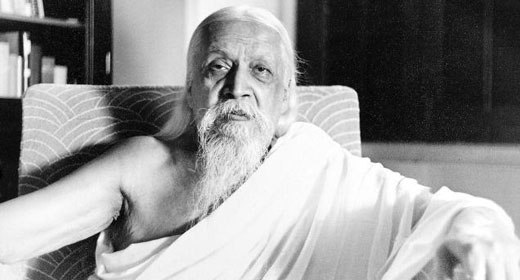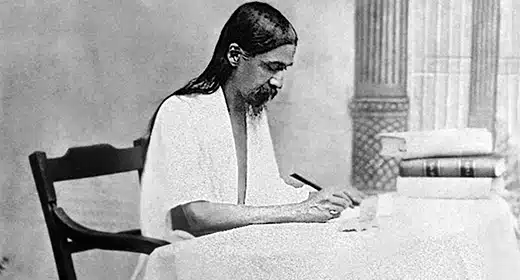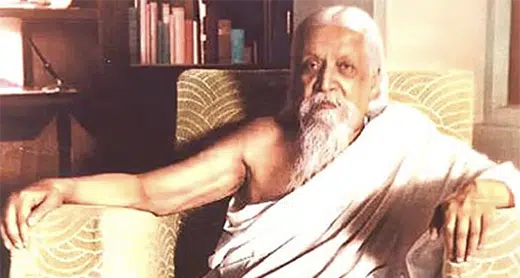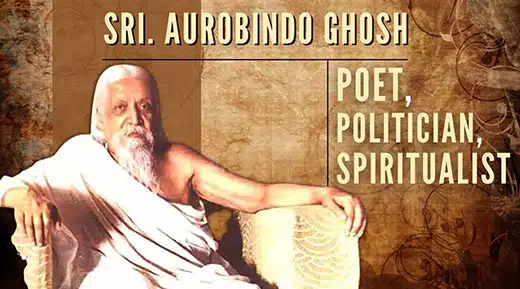Sri Aurobindo (Sri Ôrobindo) (15 August 1872 – 5 December 1950), born Aurobindo Ghosh or Ghose (Ôrobindo Ghosh), was an Indian nationalist, freedom fighter, philosopher, yogi, guru, and poet. He joined the Indian movement for freedom from British rule, for a while became one of its influential leaders, and then turned into a spiritual reformer, introducing his visions on human progress and spiritual evolution.
Aurobindo studied for the Indian civil service at King’s College, Cambridge. After returning to India he took up various civil service works under the Maharaja of Baroda, and started to involve himself in politics. While in politics he was imprisoned by British Indiafor writing articles against British rule. He was released when no evidence was provided. During his stay in the jail he is believed to have had mystical and spiritual experiences, after which he moved to Pondicherry, leaving politics for spiritual work.
During his stay in Pondicherry, Aurobindo evolved a new method of spiritual practice, which he called Integral Yoga. The central theme of his vision was the evolution of human life into a life divine. He believed in a spiritual realisation that not only liberated man but also transformed his nature, enabling divine life on earth. In 1926, with the help of his spiritual collaborator, Mirra Alfassa (“The Mother”), he founded the Sri Aurobindo Ashram. He died on 5 December 1950. He was the first Indian to create a major literary corpus in English.
His main literary works are The Life Divine, which deals with theoretical aspects of Integral yoga; Synthesis of Yoga, which deals with practical guidance to Integral yoga; and Savitri, an epic poem which refers to a place in the Mahabaratha, where its characters actualise Integral yoga in their lives. His works also include philosophy, poetry, translations and commentaries on the Vedas, Upanishads, and the Gita.








